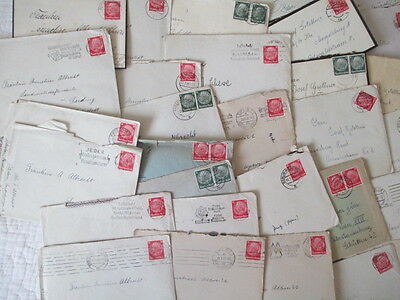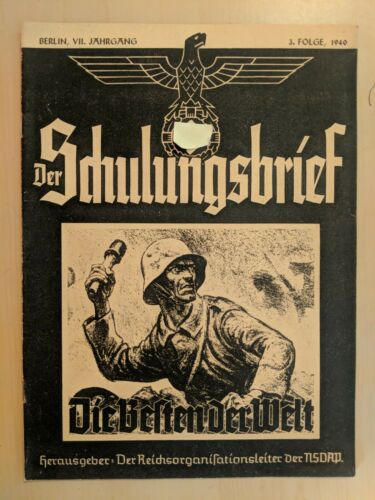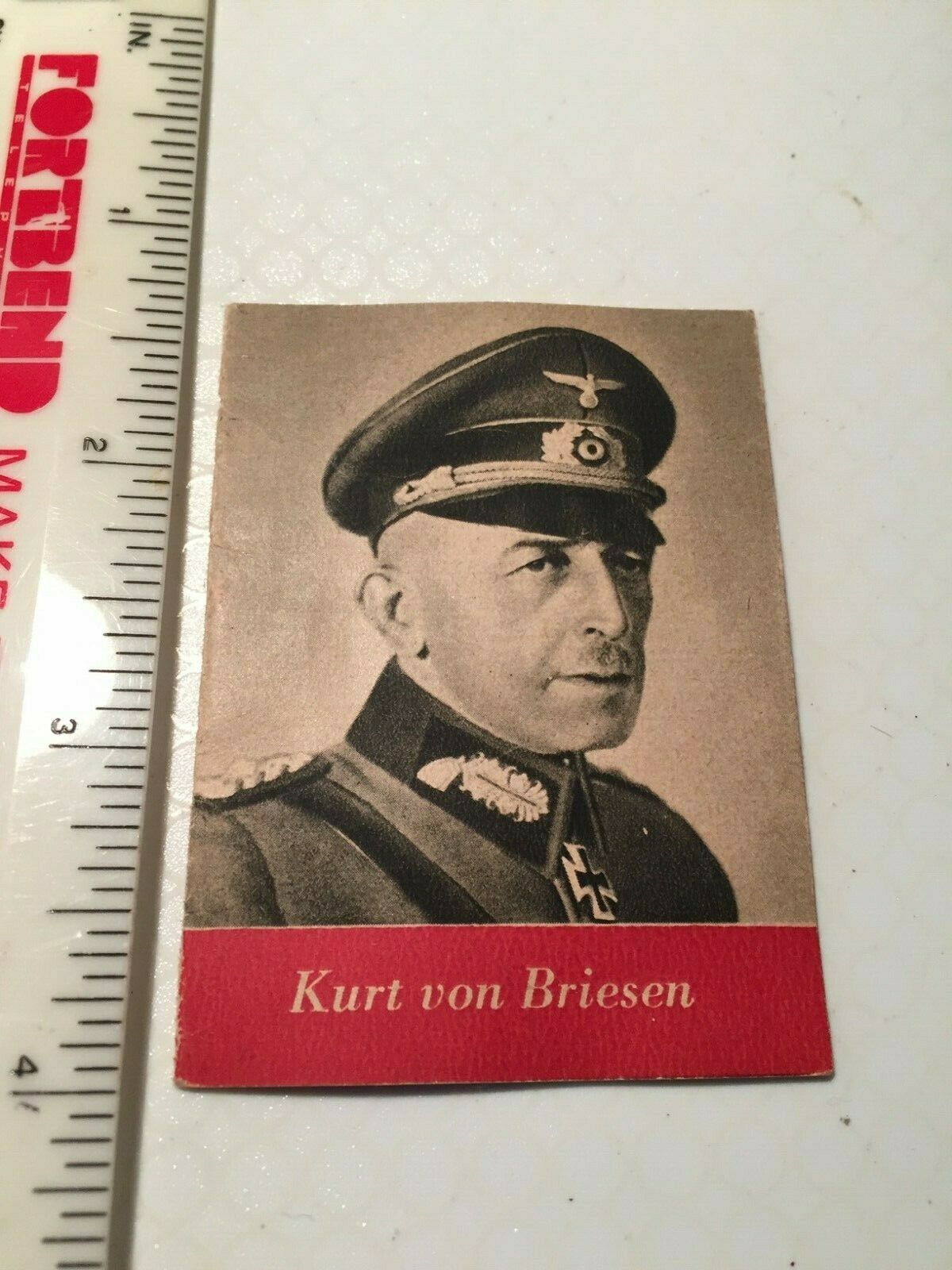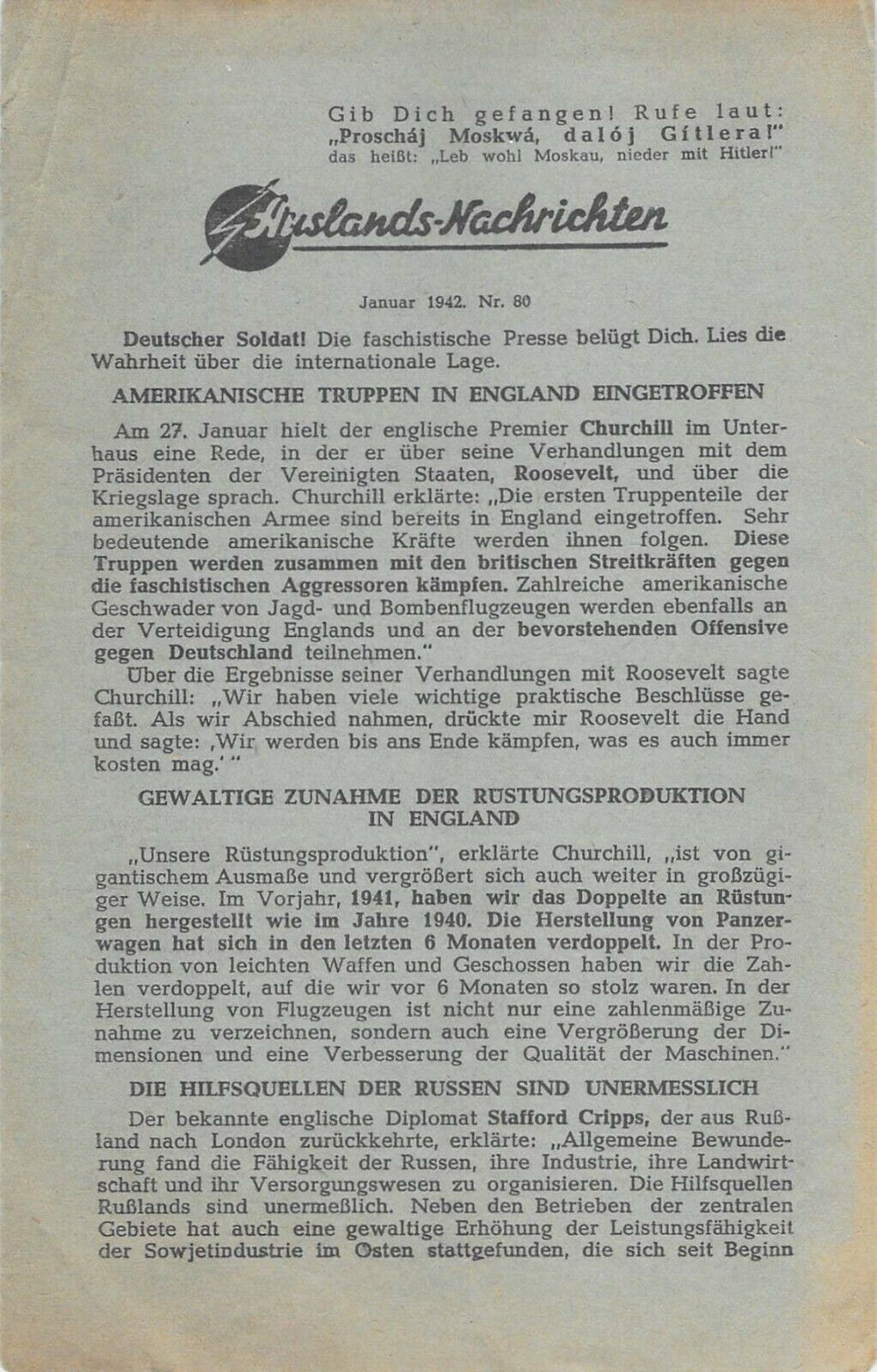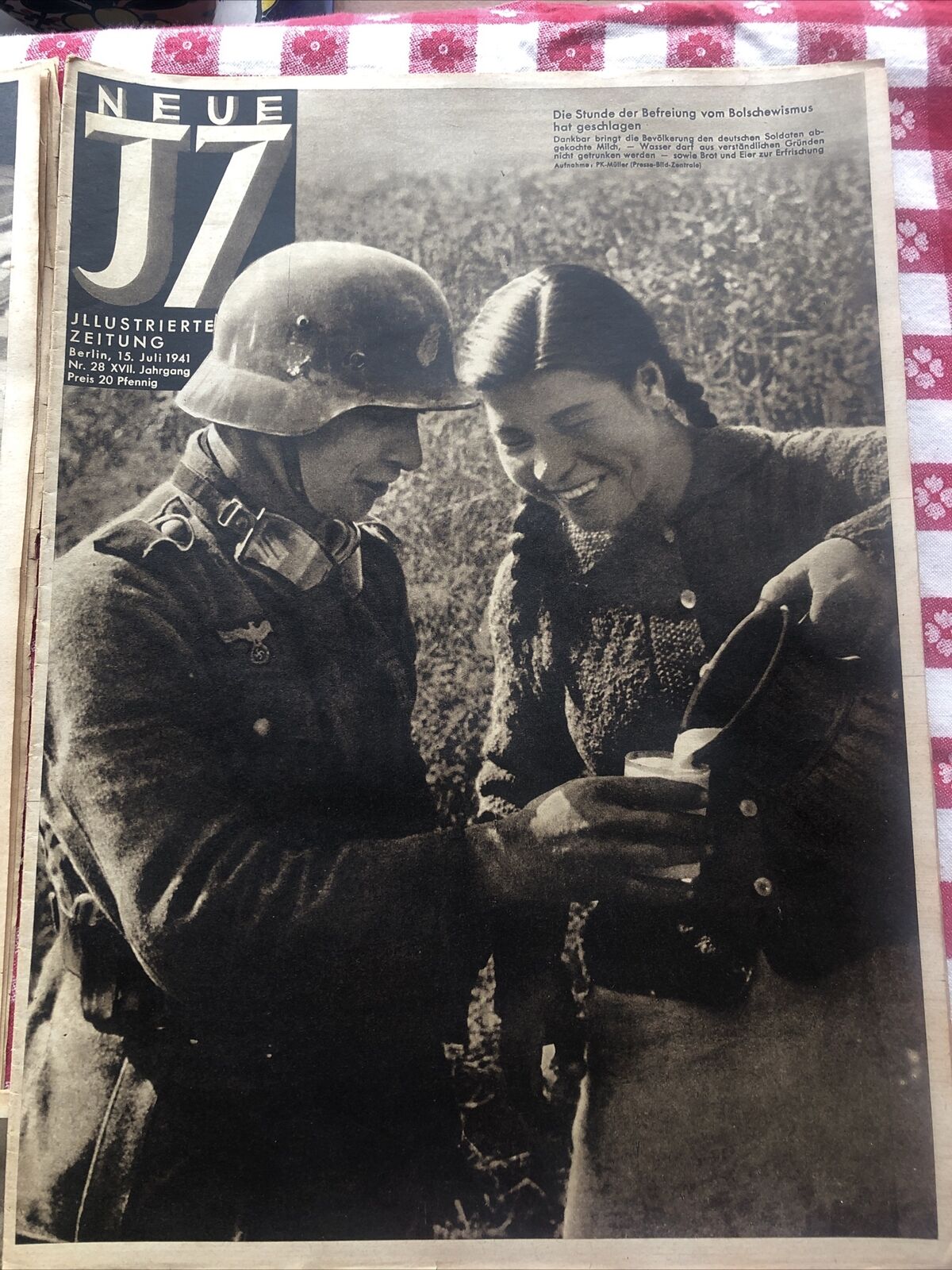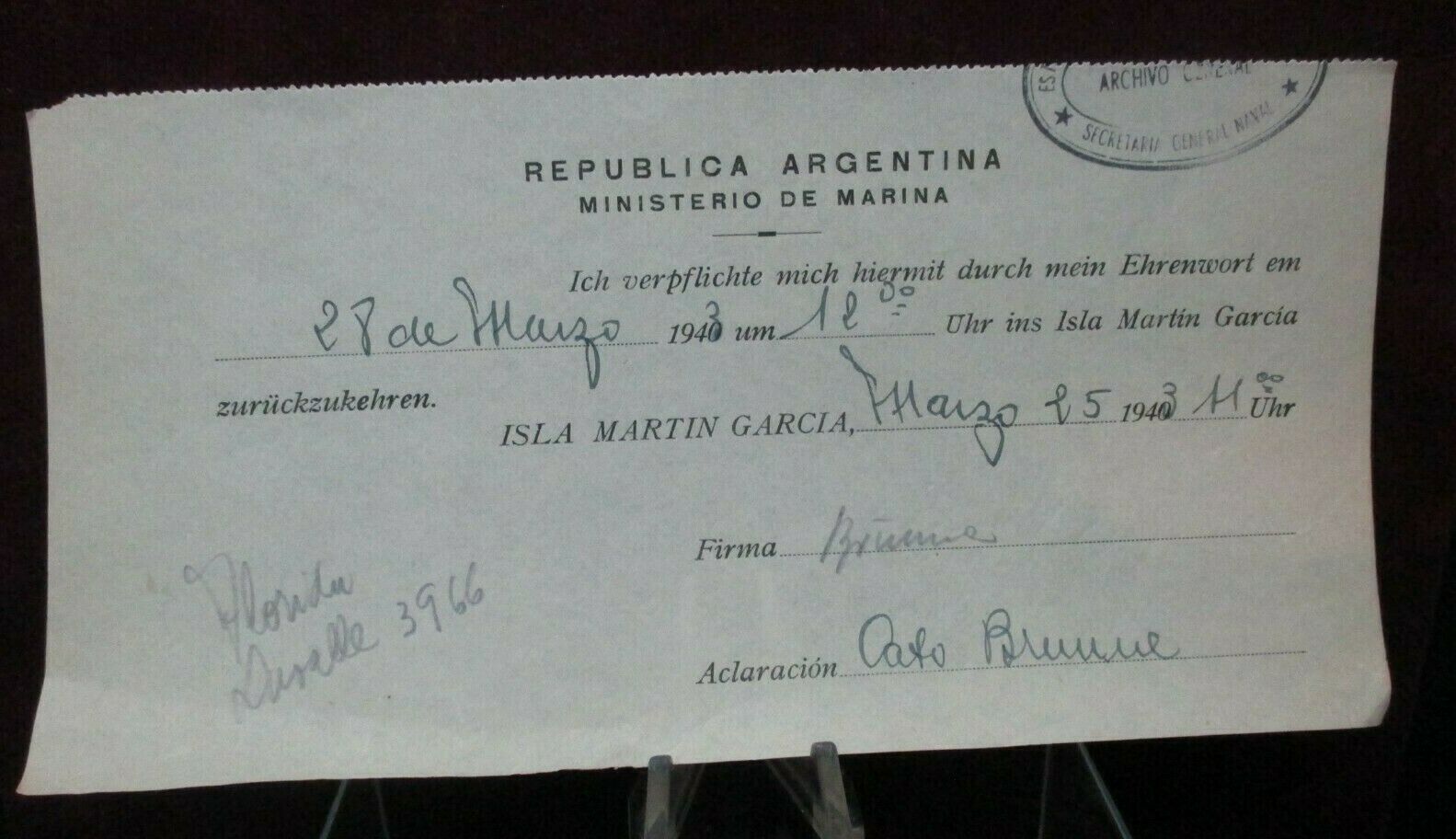-40%
1939 signed NDSAP Inspector General of Labor Freiherr Toeffelhof von Colberg
$ 472.56
- Description
- Size Guide
Description
An original signed document from Freiherr Toeffelhof von Colberg, mounted on a stiff cardboard backing with a large caption on the right and below explaining the item. It has a clear laminate on top of it and punch holes on the top. I think it may have been part of a report from a Dutch student, probably some time during or after the war.A very rare signature on a one of a kind document.
Caption is below in Dutch:
FREIHERR TOEFFELHOF von COLBERG zijn originele hand tekening ter gelegenheid van een inspectiereis i n "Arbeitsgau XXXII-Saarpfalz" 11-13 juni 1939 voorzien van het belangrijke M.d.R. is Mitglied des Reichtages [sic] (Reichstages) Hij was GENERALARBEITSFÜHRER und INSPEKTOR R.A.D.
English translation:
FREIHERR TOEFFELHOF von COLBERG his original signature on the occasion of an inspection trip in "Arbeitsgau XXXII-Saarpfalz" 11-13 June 1939 bearing the important M.d.R. is Member of the Reichstag He was GENERAL LABOR LEADER and INSPECTOR R.A.D.
About General Colberg during this time period:
"On April 1, 1933 Colberg was appointed leader in the labor service. On November 1, 1933, he was appointed head of the personnel office of the Reichsleitung des Arbeitsdienst in the Reichsarbeitsministerium . In 1935 he was transferred to the Reich Labor Service as Reich Labor Service Director and appointed General Labor Leader that same year. On April 1, 1937, he was finally appointed inspector for the entire human resources department of the Reich Labor Service. With the rank of chief general labor leader Colberg retired on November 30, 1939 due to age from the Reichsarbeitsdienst.
Colberg entered the National Socialist Reichstag on 19 November 1938 in the follow-up procedure for the deputy Franz Stöhr as a deputy, to which he belonged until his death in 1945 as a representative of constituency 11 (Merseburg). In addition, he was appointed to the Chancellery of the Fuehrer in mid-January 1940 and was a member of the People's Court from the beginning of April 1940."
Prior to his ascent to General Labor Leader:
"After attending elementary school , humanistic grammar schools in Ansbach and Schwäbisch Hall and the Luitpold grammar school in Munich , Colberg joined the Bavarian Army : in 1894 he was an aspiring officer in the infantry body regiment in Munich. In 1895 he was appointed portepee ensign and in 1896 as lieutenant . In 1897 he was transferred to the 20th Infantry Regiment "Prinz Franz" , to which he belonged for two years, until in 1899 he was transferred to the 1st Kurhessian Infantry Regiment No. 81 in Frankfurt am Mainwas moved. From 1901 to 1906 he worked there as a battalion and regimental adjutant . After Colberg had already attended the Munich War School , he was promoted to first lieutenant in 1906 and in the same year sent to the Prussian War Academy in Berlin , where he was trained until 1909. From 1910 to 1913 Colberg was active in the General Staff . In 1913 he was transferred as a captain and company commander to the Fusilier Regiment "Queen" (Schleswig-Holstein) No. 86 in Flensburg .
At the First World War Colberg initially took part of this regiment as a company commander. He was later employed as an orderly officer with the district chief Dinant , as an officer in the Deputy General Staff in Berlin and subsequently as a battalion commander in the 84th, 76th and 31st Reserve Infantry Brigade. In this capacity he was seriously wounded off Arras in October 1917 . After his recovery he was adjutant of the General Command of the IX until the end of the war . Reserve Corps . On December 18, 1918, he retired from the army with the rank of major. The awards he had earned during the war included the Iron Cross for both classes, the Military Merit Cross (Mecklenburg) for both classes, the Friedrich August Cross , the Hamburg, Bremen and Lübeck Hanseatic Crosses , the Cross of Honor of the Princely House Order of Hohenzollern and the Badge for Wounded .
In 1919 Colberg joined the Völkisch movement . From 1920 to 1923 he was Chief of Staff of the Great Organization of Colonel Hoffmann in Passau . During the Hitler putsch , he said he was ready in Lower Bavaria to join the coup beyond Bavaria after the expected spread of the coup . From 1924 to 1927 Colberg was a member of the Order Council of the German Legion of Honor.
In 1924 Colberg joined the National Socialist freedom movement in Bavaria. After the regular NSDAP was re-established in 1925, he also joined it. In the following years he was involved as a speaker for the party in public meetings. In addition, there were contributions as an author for National Socialist newspapers such as the Völkischer Beobachter , the Heimatland and the Arminius .
From 1929 to 1930 Colberg, who studied medicine at the University of Munich from 1927 to 1933 , was the first chairman of the Reich Association of Academic War Participants. He also sat on the board of the Greater German Student Union (Langemarck Association)."
Measures 11 3/4 by 8 1/4
Box J 07102021
Weight 1 ounce





